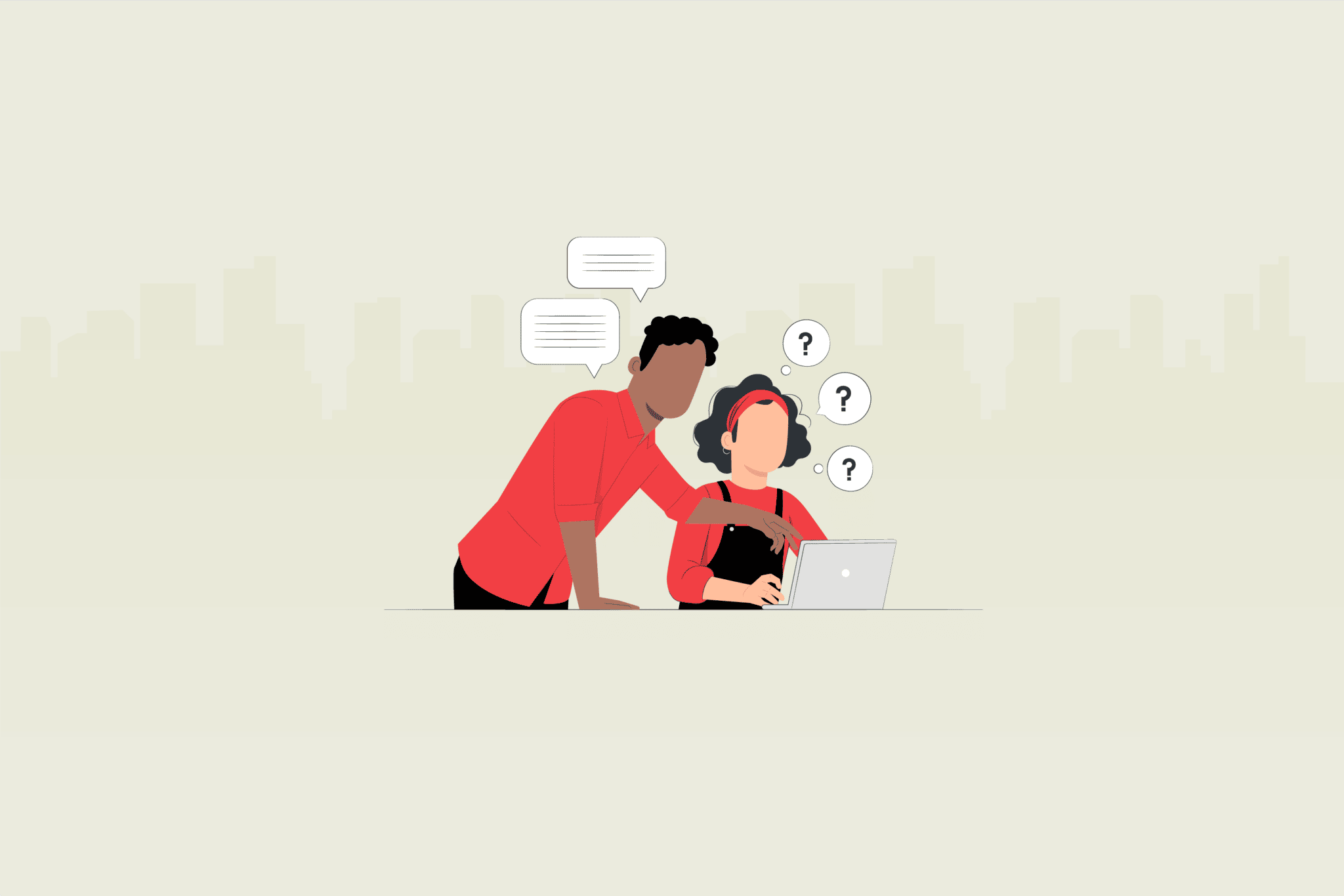In today’s dynamic business environment, the role of a Travel Coordinator holds significant importance in ensuring seamless travel experiences for employees and executives alike. As organizations strive to adapt and thrive in an increasingly globalized world, the demand for skilled Travel Coordinators continues to grow. According to recent industry analytics, the recruiting trend for Travel Coordinators has witnessed a notable upswing, with a substantial increase in job postings and competition for talent in this field. Human Resources professionals and C-suite executives are recognizing the pivotal role played by Travel Coordinators in optimizing travel operations, reducing costs, and enhancing traveler satisfaction.
In this context, it becomes essential for organizations to identify the most qualified candidates for the position and assess their expertise in managing complex travel itineraries, leveraging technology solutions, and ensuring compliance with travel policies. As the landscape of Travel Coordinator recruitment evolves, HR professionals and CXOs must ask the right interview questions that delve into the skills, experience, and adaptability required to excel in this role.
Here are the top 60 Travel Coordinator interview questions to ask job applicants:
15 general interview questions for the Travel Coordinator
- Can you describe your previous experience in coordinating travel arrangements for individuals or groups?
- How do you prioritize and manage multiple travel requests simultaneously?
- What tools or software do you rely on for organizing and tracking travel itineraries?
- How do you ensure compliance with travel policies and budget constraints while meeting traveler preferences?
- Can you share an example of a challenging travel-related problem you encountered and how you resolved it?
- How do you stay updated on travel industry trends, regulations, and best practices?
- What strategies do you employ to negotiate and secure the best rates and deals for flights, accommodations, and other travel arrangements?
- How do you handle last-minute changes or disruptions to travel plans, such as flight cancellations or delays?
- Can you discuss your experience in managing travel arrangements for international trips, including visa requirements and cultural considerations?
- How do you communicate travel itineraries and necessary information to travelers efficiently and effectively?
- Have you ever worked with a travel expense management system? If so, can you provide examples of how you used it to streamline processes?
- How do you ensure a high level of customer service and traveler satisfaction during the travel coordination process?
- Can you describe a time when you had to work with a tight budget for a travel request and how you managed to achieve cost savings?
- How do you handle confidential information related to travel arrangements and the personal details of travelers?
- Can you discuss your experience in coordinating group travel, including handling logistics, ensuring group cohesion, and managing any challenges that may arise?
5 sample answers to general interview questions for the Travel Coordinator
- Can you describe your previous experience in coordinating travel arrangements for individuals or groups?
Look for: Experience in managing both individual and group travel, attention to detail, and ability to handle complex itineraries.
Example answer: “In my previous role as a Travel Coordinator, I was responsible for coordinating travel arrangements for both individual travelers and large groups. For individuals, I would carefully plan their flights, accommodations, ground transportation, and any additional requirements. For group travel, I would handle logistics such as coordinating flight schedules, organizing group accommodations, and managing any special requests. Attention to detail was crucial, especially when dealing with complex itineraries that involved multiple destinations and connecting flights.”
- How do you ensure compliance with travel policies and budget constraints while meeting traveler preferences?
Look for: Knowledge of travel policies, the ability to balance policy adherence and traveler satisfaction, and experience in managing budgets.
Example answer: “To ensure compliance with travel policies and budget constraints, I start by thoroughly familiarizing myself with the organization’s travel policies and guidelines. I communicate these policies to travelers and guide them to ensure their understanding and compliance. At the same time, I prioritize traveler preferences by actively listening to their needs and preferences. By leveraging my knowledge of available options and negotiating skills, I find creative solutions that meet both policy requirements and traveler satisfaction. Additionally, I maintain a close eye on travel expenses and employ strategies like booking and cost-saving measures to stay within budget.”
- How do you handle last-minute changes or disruptions to travel plans, such as flight cancellations or delays?
Look for: Problem-solving skills, the ability to remain calm under pressure, and knowledge of alternative options and solutions.
Example answer: “In the event of last-minute changes or disruptions, such as flight cancellations or delays, I understand the importance of remaining calm and quickly assessing the situation. I immediately initiate contact with the travelers to inform them about the changes and reassure them that I am working on alternative arrangements. I utilize my knowledge of airline policies and alternate flight options to secure new flights or rebook existing ones. If needed, I also coordinate with hotels or ground transportation providers to adjust reservations accordingly. Throughout the process, I maintain clear communication with the travelers to keep them informed and minimize any inconveniences.”
- Can you discuss your experience in managing travel arrangements for international trips, including visa requirements and cultural considerations?
Look for: Familiarity with international travel procedures, knowledge of visa requirements and processes, and cultural sensitivity.
Example answer: “I have extensive experience in managing travel arrangements for international trips, including dealing with visa requirements and cultural considerations. I stay up to date with visa regulations for various countries and proactively provide travelers with the necessary information and documentation to facilitate their visa applications. I also take cultural considerations into account, such as appropriate dress codes, local customs, and potential language barriers. By working closely with international partners and leveraging resources like travel advisories, I ensure that travelers have a smooth and culturally sensitive experience.”
- How do you ensure a high level of customer service and traveler satisfaction during the travel coordination process?
Look for: Customer service mindset, communication skills, ability to handle traveler feedback and resolve issues.
Example answer: “Customer service and traveler satisfaction are my top priorities throughout the travel coordination process. I maintain open lines of communication with travelers, promptly responding to their inquiries and providing them with accurate and timely information. I actively seek feedback from travelers to understand their experiences and address any concerns they may have. In case of issues or complaints, I take a proactive approach to resolve them swiftly, whether it involves liaising with service providers, offering alternative solutions, or providing compensation when appropriate. By consistently delivering exceptional service, I aim to ensure a positive travel experience for every traveler.”
15 behavioral interview questions for a Travel Coordinator
- Describe a time when you had to handle multiple travel requests simultaneously. How did you prioritize and manage them effectively?
- Tell me about a challenging situation you faced while coordinating travel arrangements. How did you approach and resolve it?
- Can you provide an example of a time when you had to handle a last-minute change or disruption to travel plans? How did you adapt and ensure a smooth travel experience?
- Share an experience where you successfully negotiated favorable rates or deals for travel arrangements. How did you achieve those cost savings?
- Describe a time when you had to manage a tight budget for a travel request. How did you balance cost constraints while meeting traveler expectations?
- Tell me about a time when you had to coordinate travel arrangements for a large group. How did you ensure effective communication and smooth logistics?
- Provide an example of a time when you had to handle confidential information related to travel arrangements. How did you ensure data security and privacy?
- Describe a situation where you had to resolve a traveler complaint or dissatisfaction. How did you handle the situation and ensure customer satisfaction?
- Can you share a time when you had to navigate complex visa requirements and ensure compliance for international travel? How did you manage the process?
- Tell me about a time when you had to adapt to a different cultural context while coordinating travel arrangements. How did you demonstrate cultural sensitivity?
- Describe an experience where you had to troubleshoot and resolve technical issues related to travel management software or tools.
- Share an example of how you effectively communicated travel itineraries and necessary information to travelers to ensure a seamless experience.
- Tell me about a time when you had to handle an emergency during travel. How did you respond and ensure the safety and well-being of the travelers?
- Describe a situation where you had to collaborate with external travel service providers to deliver exceptional service and resolve any issues.
- Provide an example of a time when you proactively identified and implemented process improvements or efficiencies in travel coordination.
5 sample answers to behavioral interview questions for the Travel Coordinator
- Describe a time when you had to handle multiple travel requests simultaneously. How did you prioritize and manage them effectively?
Look for: Strong organizational skills, the ability to prioritize tasks, and effective time management.
Example answer: “In a previous role, I had to handle multiple travel requests for executives and employees attending various conferences and meetings. To prioritize and manage them effectively, I created a detailed spreadsheet with deadlines, travel dates, and specific requirements for each trip. I assessed the urgency and importance of each request, considering factors such as the purpose of the trip, the seniority of the traveler, and the potential impact on business objectives. By implementing a systematic approach and leveraging communication tools, I ensured timely booking of flights, accommodations, and transportation while maintaining clear and consistent communication with the travelers.”
- Can you provide an example of a time when you had to handle a last-minute change or disruption to travel plans? How did you adapt and ensure a smooth travel experience?
Look for: Adaptability, problem-solving skills, and the ability to manage unexpected situations.
Example answer: “Once, a traveler’s flight got canceled due to severe weather conditions. The traveler was scheduled for an important business meeting the next day. To ensure a smooth travel experience, I immediately contacted the airline to explore alternate flight options. Simultaneously, I proactively reached out to the traveler, providing real-time updates on the situation and discussing available alternatives. By quickly arranging a new flight on a different airline and coordinating with the hotel for an adjusted check-in time, I managed to minimize the impact of the disruption and ensure the traveler reached their destination on time.”
- Share an experience where you successfully negotiated favorable rates or deals for travel arrangements. How did you achieve those cost savings?
Look for: Negotiation skills, a cost-saving mindset, and the ability to find creative solutions.
Example answer: “In a previous position, I was tasked with reducing travel costs without compromising the quality of travel arrangements. I researched and identified preferred vendors, negotiated discounted rates, and established long-term partnerships to secure competitive deals. Additionally, I implemented a policy of booking flights well in advance to take advantage of lower fares. By analyzing historical travel data and consolidating travel volumes, I could leverage our company’s purchasing power to negotiate additional savings. Overall, these efforts resulted in a significant reduction in travel expenses while maintaining traveler satisfaction.”
- Describe a time when you had to handle confidential information related to travel arrangements. How did you ensure data security and privacy?
Look for: Understanding of data security, commitment to confidentiality, and attention to detail.
Example answer: “In my previous role, I frequently dealt with sensitive information such as personal details, passport numbers, and credit card information during travel coordination. To ensure data security and privacy, I strictly adhered to company policies and industry best practices. I utilized secure systems and encrypted communication channels to transmit confidential information. I also implemented strict access controls and password protocols to protect data stored in our travel management system. Additionally, I regularly updated my knowledge of data protection regulations and applied them diligently to maintain compliance and safeguard sensitive traveler information.”
- Describe a situation where you had to resolve a traveler complaint or dissatisfaction. How did you handle the situation and ensure customer satisfaction?
Look for: Customer service skills, conflict resolution abilities, and empathy.
Example answer: “Once, a traveler encountered a series of inconveniences during a business trip, leading to dissatisfaction and frustration. To address the situation and ensure customer satisfaction, I listened attentively to their concerns and empathized with their experience. I took ownership of the issue and promptly initiated corrective actions. I contacted service providers involved, such as airlines and hotels, to rectify any shortcomings and secure appropriate compensation for the traveler. Throughout the process, I maintained regular communication with the traveler, providing updates and ensuring their concerns were addressed effectively. By demonstrating responsiveness and a genuine commitment to resolving the issue, I managed to turn the situation around and regain the traveler’s trust.”
15 personality interview questions for the Travel Coordinator
- How do you handle stress and tight deadlines in a fast-paced work environment?
- Describe a situation where you had to demonstrate strong attention to detail in your work.
- How do you prioritize tasks and manage your time effectively?
- Can you describe a time when you had to handle unexpected changes or disruptions to your work schedule? How did you adapt?
- How do you stay organized and ensure accuracy when managing multiple travel arrangements simultaneously?
- Tell me about a time when you had to make a difficult decision related to travel coordination. How did you approach it?
- How do you handle situations where there are conflicting travel preferences or requests from different individuals or teams?
- Describe a time when you had to resolve a conflict or disagreement among travelers. How did you manage it?
- Can you share an experience where you had to exercise flexibility and adaptability in coordinating travel plans?
- How do you stay up to date with industry trends, technology advancements, and best practices in travel coordination?
- Describe a situation where you had to communicate complex travel information to individuals with varying levels of understanding. How did you ensure clarity?
- How do you demonstrate cultural sensitivity and adapt your approach when working with travelers from diverse backgrounds?
- Can you share an example of a time when you went above and beyond to exceed a traveler’s expectations?
- How do you handle situations where there are conflicting travel policies or guidelines from different stakeholders?
- Describe a time when you had to collaborate effectively with team members from different departments or external vendors to achieve travel objectives.
5 sample answers to personality interview questions for Travel Coordinator
- How do you handle stress and tight deadlines in a fast-paced work environment?
Look for: Resilience, the ability to stay calm under pressure, and effective stress management techniques.
Example answer: “In a fast-paced work environment, I thrive under pressure by maintaining a calm and composed demeanor. I prioritize tasks based on their urgency and importance, ensuring that critical deadlines are met. To manage stress, I practice effective time management techniques such as creating to-do lists, breaking down complex tasks into manageable steps, and delegating when appropriate. Additionally, I find it helpful to take short breaks and engage in stress-relieving activities, such as deep breathing exercises or quick walks, to recharge and refocus.”
- Describe a situation where you had to make a difficult decision related to travel coordination. How did you approach it?
Look for: Decision-making skills, the ability to weigh pros and cons, and sound judgment.
Example answer: “Once, I had to make a difficult decision when a last-minute flight change led to a significant increase in travel expenses. After assessing the situation, I carefully evaluated the available options, considering factors such as budget constraints, traveler preferences, and the impact on business objectives. I sought input from relevant stakeholders and conducted thorough research on alternate flights and their associated costs. Ultimately, I made a well-informed decision that balanced cost considerations with minimizing travel disruptions, ensuring the best outcome for both the organization and the traveler.”
- Can you share an experience where you had to exercise flexibility and adaptability in coordinating travel plans?
Look for: Adaptability, problem-solving abilities, and the ability to handle changes in plans.
Example answer: “During a group trip, we encountered a sudden change in weather conditions that required a modification to the planned outdoor activities. I quickly assessed the situation, discussed alternative options with the group leader, and collaborated with local vendors to arrange indoor activities that aligned with the group’s interests and preferences. By adapting the itinerary on short notice and effectively communicating the changes to the travelers, we were able to ensure an enjoyable experience despite the unexpected circumstances.”
- How do you demonstrate cultural sensitivity and adapt your approach when working with travelers from diverse backgrounds?
Look for: Cultural awareness, effective communication skills, ability to understand and respect different customs and traditions.
Example answer: “When working with travelers from diverse backgrounds, I recognize the importance of cultural sensitivity. I approach each interaction with an open mind and a willingness to learn about different customs and traditions. I take the time to research and understand the cultural norms of the destinations my travelers are visiting, including appropriate greetings, dress codes, and dining etiquette. I adapt my communication style to be inclusive, respectful, and mindful of potential language barriers. By demonstrating cultural awareness and fostering an environment of inclusivity, I aim to ensure that every traveler feels valued and comfortable throughout their journey.”
- Describe a time when you had to collaborate effectively with team members from different departments or external vendors to achieve travel objectives.
Look for: Collaboration skills, teamwork, the ability to build relationships, and work well with others.
Example answer: “In a previous project, I was responsible for coordinating a corporate retreat that involved multiple departments and external vendors. To ensure its success, I established strong lines of communication with key stakeholders, actively engaging them in the planning process and gathering their input. I organized regular meetings and provided clear updates to ensure alignment and address any challenges. By fostering a collaborative environment, encouraging open communication, and leveraging the expertise of team members and vendors, we were able to deliver a seamless and memorable retreat experience.”
When should you use skill assessments in your hiring process for Travel Coordinator?
Skill assessments should be used in the hiring process for Travel Coordinators to evaluate a candidate’s practical knowledge and abilities related to travel coordination tasks. Assessments are important because they provide objective insights into a candidate’s skill level, helping you make more informed hiring decisions. By incorporating skill assessments, you can ensure that the candidates you select possess the necessary competencies to excel in the role.
Several types of assessments can be used to evaluate the skills of Travel Coordinators. One common assessment is a simulated or scenario-based exercise that presents candidates with travel-related scenarios and challenges them to make decisions or solve problems. This assesses their ability to handle real-world situations and demonstrates their problem-solving, decision-making, and organizational skills.
Another assessment method is a knowledge-based test that evaluates a candidate’s understanding of travel industry practices, such as travel regulations, visa requirements, booking procedures, and travel management systems. This assessment can be in the form of multiple-choice questions or open-ended questions to assess their depth of knowledge.
Additionally, role-play exercises or mock travel coordination tasks can be used to assess a candidate’s ability to communicate effectively, negotiate, and manage multiple travel arrangements simultaneously. These assessments allow candidates to showcase their interpersonal skills, attention to detail, and ability to work under pressure.
Overall, skill assessments provide valuable insights into a candidate’s capabilities and help you identify the most qualified candidates for the Travel Coordinator role. By incorporating these assessments into your hiring process, you can ensure that the selected candidates possess the necessary skills to excel in coordinating travel arrangements effectively.
Use our interview questions and skill tests to hire a talented Travel Coordinator
Unlock the potential of your hiring process with Testlify’s comprehensive skill assessments and interview questions specifically designed for Travel Coordinator.
Our extensive test library offers a wide range of assessments, including cognitive function, personality, situational judgment, programming, and more. By leveraging these assessments, you can objectively evaluate candidates’ abilities, ensuring you shortlist the most talented individuals efficiently.
To further enhance your hiring process, we invite you to book a free 30-minute live demo. Our expert team will guide you through the platform, showcasing relevant skill tests tailored to your hiring needs. With our support, you can streamline candidate selection, saving valuable time and resources.
Ready to find the perfect fit for your Travel Coordinator role? Testlify provides the tools you need to make informed hiring decisions. Explore our skill assessments and interview questions today to uncover exceptional talent for your team.








